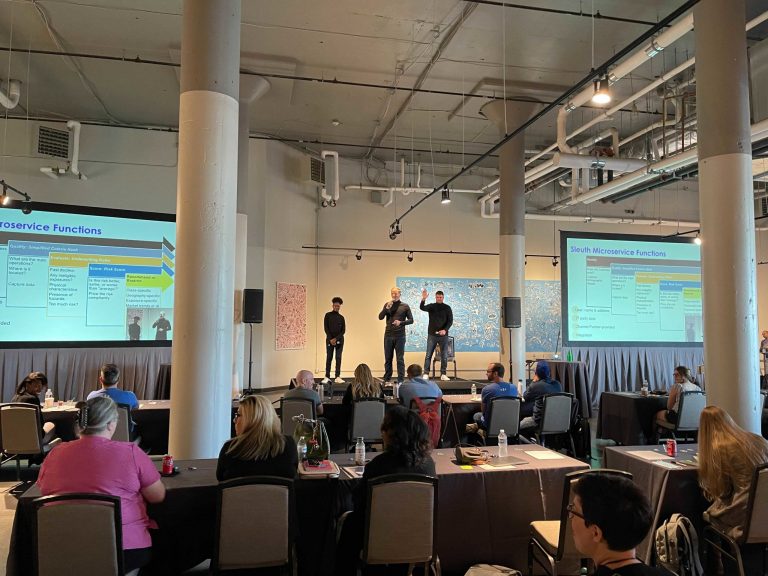By Tim Metzner, Coterie Insurance Co-founder & CSO
Though many founders wait until a big exit event, or failure, to share the lessons they have learned along the journey, I thought it could be helpful to unpack the lessons from founding to Series B funding while they’re still fresh. Some of these are repeat lessons (from previous companies) and some new to me.
Though there will be much to learn from this point forward, I always enjoy helping others on their journey, just as others have continued to help us. Of course, every startup journey is unique, so lessons from one do not always translate, but here are a few from our journey thus far.
- Don’t stop thinking big. If you want to do something special, adapt Jeff Bezos’ famous, “Day 1 Culture“. At some point you will start to build momentum in a channel or market and be held accountable to hitting short-term goals. Great! Run hard. But… to put it in cliches, you must simultaneously fish where the fish are today and skate where the puck is going.
- Focus. While the “Day 1” mentality is invaluable to long-term sustainable growth, so is winning decisively at something early on (like books for Amazon). This gives you a chance to survive long enough to bring your future vision to fruition. As I’m fond of sharing with early stage founders, your first product should be a scalpel not a Swiss army knife!
- Your role as a founder must evolve. Whether your title changes or not (and you must be open to this), put your ego aside and put people around you who will tell you where you need to grow or to bring in expertise.
- Be thoughtful about how you bring in senior leaders from the outside. This is especially tricky if “things aren’t broken” (e.g., the leader was brought in to get you to a new level, not save a sinking ship). Consider not just skills and culture fit, but also management style and the makeup of the existing team they will be leading.
- Address issues head on and quickly. Bad news doesn’t get better with age. That person you have been keeping around because it feels impossible to replace, or like it will slow you down too much to let them go? Do it. Now. They are doing more harm than you realize to the team around them (and possibly your customers/partners if they are externally facing).
- Defend your culture. You should be hiring, firing, and promoting people based on your core values and your culture. By the way, this also includes clients/partners. No partner is so important that you should tolerate your employees being treated poorly.
- Own your mistakes and struggles with your investors. Establish trusted relationships that will allow you to be candid with your investors about areas of struggle and need. Don’t create a false or doctored narrative for Board meetings that embellish reality or avoid hard topics.
- Not all your early leaders will scale. Some can and will grow with the org, but some will have no real desire or ability to do so. Slotting them into a role they do not want or understand will not end well. On the other side of this, do not try to hire ahead of your current needs. You will end up with leaders who are not willing or equipped to roll up their sleeves and move things forward.
- Those great at executing do not always make great leaders. One specific example of the last point is that the people you need early on (ass kickers who are great at executing) will not necessarily be great leaders of large groups of people, or may not want this responsibility at all. Because things evolve so rapidly, I recommend continually asking these three questions about your leaders, especially as you consider promotions.
- Don’t wait too long to start raising. Keep in mind that even our worst-case scenario tends to be rosier than reality in those early funding rounds. If you haven’t felt the pain of needing a founder loan or investment to make payroll, you may still be underestimating how important this is.
- Build process and systems for right now. Yes, what you need now will eventually break down, that is okay, and indeed expected. Don’t be tricked into over-engineering your processes right now that will unnecessarily slow you down. Instead, build regular rhythms to re-evaluate when they are likely to break down, so you aren’t caught flat footed.
- Hire a world class, experienced, head of HR (Human Resources) ASAP. Getting this hire right will help you in ways you can’t even imagine right now. Similar to tech debt, process/procedure debt in HR can set you back massively if you wait too long. This person will help reinforce, improve, and bring your company’s culture to life. They should also be a great recruiter (remember: hire for current need, not future lead).
- Your team will follow your lead. You must lead by example, especially with regards to culture and how employees are taught to treat each other. A particularly important (and overlooked) example is for you to regularly take time off. Disconnect. Do things outside of work and let your team see this, so they feel comfortable and encouraged to do the same.
- You will get things wrong. You must admit when you do and be able to learn from it. Own your mistakes, remember the lessons they produce, and then let them go!
- Hire a coach. For you and/or any key leaders of your executive team who are in critical people-leading roles. Help them identify the areas they need the most work on and bring in outside help to get them to the next level.
- Over invest in culture and people, even at the very earliest stages. If you get this right, you will experience massive returns in the form of recruiting, retention, productivity, and day-to-day joy.
- Celebrate your team and your wins. Even the small ones, and give your team permission to do the same. But stay humble. Yes, you have worked hard, but there are too many people and circumstances at play, outside of your control, for you to take credit.
- Build a community of entrepreneurs for founder therapy. Surround yourself with people that you can process things with, be real with, and seek advice from. The pressure to perform naturally ramps up as you take more of other people’s money. While the outside world sees you “crushing it”, internally you may be stressing out or redlining. Find relief valves for that pressure.
Again, I know that our journey is still early. There is still much work to do, mistakes to make, and lessons to learn. We are just getting started, but we have also come a long way. Having been a part of startups my entire career, it’s not lost on me how rare it is to get to this stage – Series B funding! – and how much I have learned from others on my own journey.
Regardless of the path forward, I am forever grateful for the opportunity we have had to build a special company and culture!





